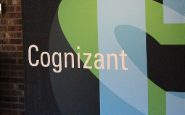Will the U.S. Government “Arthur Andersen” Infosys?

As is well-documented at this time, a whistle blower and current Infosys employee has brought suit against Infosys claiming that Infosys has criminally manipulated U.S. immigration law to allow it to bring large numbers of employees into the United States to do work under visas that do not allow such activities. This in turn led the U.S. Citizenship and Immigration Services to launch a criminal investigation of Infosys.
This brings to mind a notorious case in which the government’s criminal investigation of accounting firm Arthur Andersen related to its conduct at Enron created unintended consequences. Andersen was subsequently found not guilty; however, the government’s enthusiastic pursuit of the case and aggressive use of its position “to protect the public good” created an environment in which Arthur Andersen went out of business. The investigation and subsequent closing of Andersen caused massive disruption in the Anderson audit base, put tens of thousands out of work and destroyed the lives of thousands of Andersen partners.
Infosys is unlikely to be put out of business, but I think there is a warning which should be applied to this emerging, but eerily similar, situation. As the criminal probe progresses, one could imagine that the consular officials overseeing issuing visa’s in India cast a jaundiced eye over Infosys visa applications. If Infosys starts to be seen by these consular officials as a criminal organization, or at least practicing overly aggressive strategies in applying for visas, we could see increased scrutiny of Infosys’ visa applications, which could create a scenario that might impede Infosys’ normal operations. Such a scenario is not altogether unbelievable given the current political climate with 9 percent unemployment and the early stages of a presidential election brewing, which could drive populist rhetoric on such issues. Should this behavior indeed transpire in part or in whole, it would have a substantial effect on Infosys’ ability to conduct operations as normal in the United States. Costs would rise, knowledge transfer could be delayed or forgone and Infosys’ ability to find and capture new work could be impacted. No wonder Infosys stock price is down today.
The worst case scenario is that a more aggressive posture by U.S. immigration officials on top of an environment that is already unfriendly could spread to Indian heritage service providers and outsourcers in general. At this time it is too early know if what scenario will unfold, but the situation deserves close attention. Like the Arthur Andersen situation, we may find well-intentioned and vigilant public employees operating in a time of high political tension create unforeseen and negative consequences well beyond the intended scope of the investigation and without regard to what the actual resolution of the investigation turns out to be.


